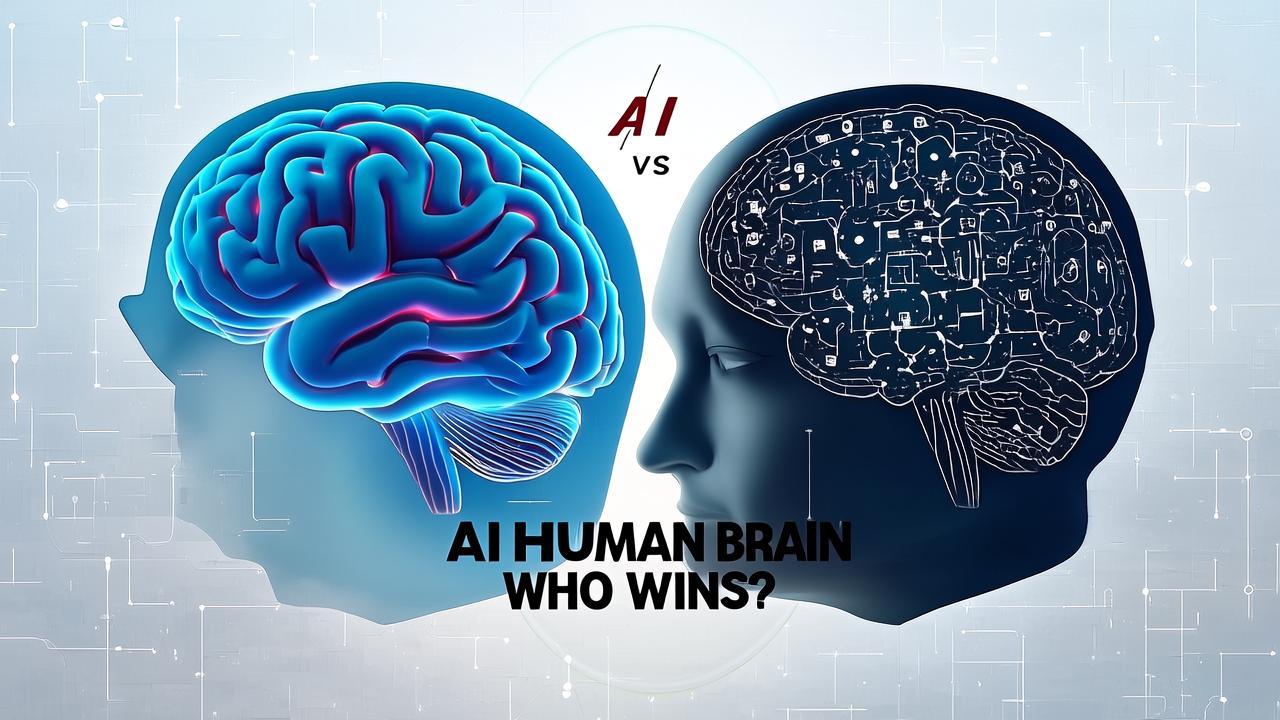AI vs Human Brain: Who Wins in Learning?
Have you ever wondered who’s smarter when it comes to learning—humans or AI? 🤖🧠 In classrooms, offices, and even on your smartphone, artificial intelligence is learning faster than ever. But does that mean it’s better than the human brain? Let’s explore this battle of brains and bots.
Understanding the Contenders
🧠 The Human Brain
The human brain is an organic supercomputer. It consists of roughly 86 billion neurons, capable of forming complex networks and adapting through experiences. Our brain excels in:
- Emotional understanding
- Abstract reasoning
- Creative thinking
- Learning from context and mistakes
🤖 Artificial Intelligence
AI, on the other hand, is a machine-based system that learns from data, using algorithms to recognize patterns and make decisions. Today’s AI can:
- Process massive datasets in seconds
- Learn from thousands of inputs simultaneously
- Detect patterns invisible to the human eye
- Operate 24/7 without fatigue
🧠 Memory & Data Processing
Humans have limited short-term memory and rely on experience and repetition. While long-term memory is powerful, it’s often unreliable and biased. In contrast, AI can store and access vast amounts of data with 100% accuracy.
Winner: AI – hands down, when it comes to memory and raw data processing.
💡 Creativity & Innovation
While AI can generate music, write articles, and even paint portraits, it does so based on existing data. It lacks genuine original thought or emotion. Human creativity, rooted in emotions and life experiences, leads to breakthroughs and innovations.
Winner: Human Brain – for now, we still lead in creativity and imagination.
📈 Speed of Learning
AI can learn faster than any human. Give it enough data, and it can master chess, diagnose diseases, or write code in hours. Humans, however, require repetition, feedback, and motivation.
Winner: AI – speed is one of its biggest advantages.
🌍 Adaptability to Real-World Change
Humans can navigate complex, emotional, and uncertain environments. We make moral choices, adjust our behavior based on culture, and learn through intuition. AI struggles when data is missing or the environment is unpredictable.
Winner: Human Brain – unmatched in emotional and social adaptability.
🧪 Learning Styles & Flexibility
AI learns through machine learning models—structured, logical, and input-dependent. Humans use diverse styles: visual, auditory, kinesthetic. We also learn through storytelling, relationships, and failure—something AI cannot emulate yet.
Winner: Human Brain – for its learning diversity and flexibility.
🤝 Can They Work Together?
Absolutely! The goal isn’t to replace one with the other but to combine strengths. AI can help students learn faster, support doctors in diagnosis, and assist researchers in simulations. When AI handles repetitive tasks, humans can focus on big-picture thinking.
💡 Real-World Applications
- 📚 Education: AI tutors support personalized learning
- 🏥 Medicine: AI helps detect diseases early
- 🎨 Creativity: AI tools assist writers and artists with ideas
🧠 Final Verdict: Who Wins?
It depends on the arena. In speed, data, and repetition, AI clearly wins. But when it comes to emotions, creativity, and human connection, our brains still reign supreme. The real power lies in collaboration—not competition.
🔥 Conclusion: The Future is Human + AI
Instead of asking who’s better, we should ask: How can we learn better together? With AI’s precision and the human brain’s depth, the future of learning looks exciting, fast, and limitless.
Now it’s your turn! Do you think AI will ever truly match the human brain in learning? Drop a comment, share your thoughts, or hit that share button to start the conversation!

